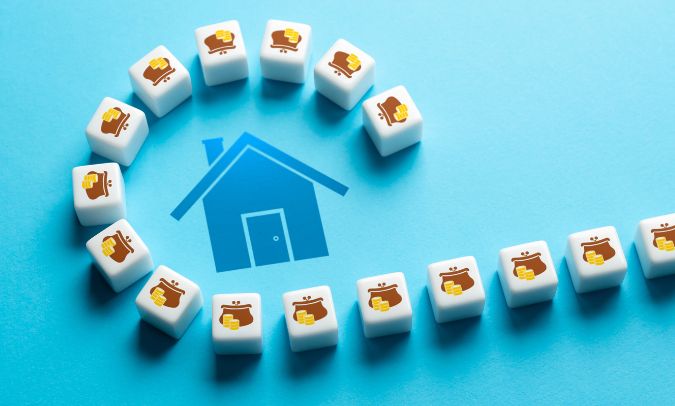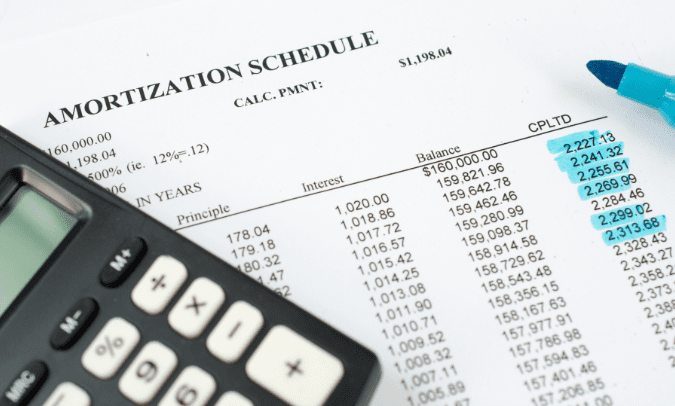How to Pay Off Your Mortgage Faster
01/27/25

After years of diligent savings, Sarah and James finally bought their dream home in Bloor West Village. But instead of settling into decades of mortgage payments, they made a plan to pay it off early. By adopting simple strategies like increasing their payment frequency and using prepayment privileges, they shaved 10 years off their mortgage term, saving tens of thousands in interest.
Paying off your mortgage ahead of schedule is a financial goal that can save you thousands in interest and help you achieve long-term stability. However, it’s important to understand the potential restrictions and penalties associated with paying more than the set mortgage instalments in Canada. Closed mortgages, common in Canada, often come with prepayment limits and penalties. Knowing these rules can help you maximize your payments without incurring unnecessary fees.
Disclaimer: This article is not intended to provide sound financial advice. The Smith Proulx Team encourages readers to review their mortgage contracts and discuss their options with a mortgage professional to determine the best strategy for their individual situation.

Increase Payment Frequency
Switching from monthly to biweekly or weekly payments can help you pay off your mortgage sooner. Accelerated payment options align with your pay schedule and slightly increase the amount you pay over the course of a year. For example, a biweekly schedule results in 26 payments annually instead of 12 monthly payments, equating to one extra monthly payment each year. This simple adjustment reduces your principal faster and can significantly cut interest costs over time.
Example: For a $500,000 mortgage at a 4% interest rate with a 25-year amortization, switching to accelerated biweekly payments instead of monthly could save you over $25,000 in interest and shave approximately 3.5 years off your repayment schedule.
Be sure to check your mortgage terms for prepayment restrictions to ensure these changes do not trigger penalties.
Increase Payment Amount
Boosting the amount you pay with each instalment is another effective way to save money and reduce the loan term. Rounding up payments to the nearest hundred or thousand dollars is a great start. For instance, instead of paying $1,850, consider paying $2,000. Alternatively, you can add a fixed amount—such as $25 or $100—to each payment. Making one additional payment annually or quarterly can also accelerate principal reduction and shorten your mortgage term.
Example: Adding $100 to your monthly payment on a $500,000 mortgage at 4% interest with a 25-year amortization could save you more than $20,000 in interest and reduce your mortgage term by over 2 years.
However, most closed mortgages allow extra payments up to 20% of the original principal annually without penalties. Exceeding this limit may result in prepayment penalties, so it’s essential to confirm your allowance with your lender.
Prepayment Privileges
Many Canadian mortgages allow for lump-sum payments without penalties, known as prepayment privileges. These privileges let you make substantial progress toward reducing your debt. Applying tax refunds, bonuses, or other unexpected windfalls directly to your mortgage is an easy way to take advantage of this option.
Example: If you receive a $10,000 tax refund and apply it as a lump-sum prepayment to a $500,000 mortgage at 4% interest, you could save roughly $9,000 in interest over the life of your mortgage and shorten the term by several months.
Prepayment limits typically allow up to 20% of the original principal amount to be paid annually without penalty. Exceeding this limit, paying off your balance entirely, or refinancing before the term ends can trigger prepayment penalties. Reviewing your mortgage contract and consulting with your lender can help you avoid these fees.

Optimize Interest Rates
Lowering your interest rate reduces the cost of borrowing, allowing more of your payment to go toward the principal. Refinancing your mortgage at a lower rate can result in substantial savings over time. At renewal, shop around for better rates; lenders often provide competitive offers to attract new customers. Depending on market conditions, switching between fixed and variable rates can also help reduce interest costs and maximize savings. Keep in mind that refinancing a closed mortgage before the term ends may result in prepayment penalties. These penalties are usually the greater of three months’ interest or the interest rate differential (IRD), so timing is key.
Refinance Your Mortgage
Refinancing can be an effective solution if you’ve had your mortgage for a few years and feel it no longer suits your financial situation. Refinancing allows you to renegotiate the terms of your mortgage, often securing a better interest rate or restructuring payments to align with your current goals.
For example, you may agree to higher monthly repayments in exchange for a lower overall interest rate, or pay an upfront amount to reduce your principal. Both strategies can lead to significant savings over the life of your mortgage.
Example: Refinancing a $500,000 mortgage from a 4% interest rate to 3% could save you over $50,000 in interest over 25 years, depending on fees and timing.
Before refinancing, review your mortgage agreement for prepayment penalties and factor in these costs when calculating potential savings. Consulting with a mortgage professional can help you determine if refinancing is the right move for you.

Shorten Your Amortization Period
A shorter amortization period means higher payments but less interest paid over time. If feasible, consider choosing a 15- or 20-year mortgage instead of the standard 25 or 30 years. If committing to a shorter term isn’t possible, simulate it by making payments as though your term is shorter. This approach keeps you on track to pay off the loan early while maintaining flexibility. Ensure any increased payments are within your annual prepayment allowance to avoid penalties.
Leverage Canadian-Specific Strategies
There are unique approaches for Canadian homeowners that can accelerate mortgage repayment. One option is the Smith Manoeuvre, which turns your mortgage into a tax-deductible loan by investing your home’s equity. Another is the blend-and-extend option, which allows you to renew early and lock in better rates, potentially reducing overall costs. Open mortgages, while offering higher interest rates, allow for unlimited prepayments without penalties and may be worth considering if flexibility is a priority.

Rent Out a Portion of Your Home
Renting out a portion of your home is an excellent way to generate additional income that can be applied directly to your mortgage. If your property has a basement, spare room, or a separate entrance, you can lease it out to long-term tenants or even use platforms like Airbnb for short-term rentals.
This approach works especially well in high-demand rental areas such as Toronto, where rental rates can be a significant source of supplemental income. For example, a finished basement suite could bring in $1,200 to $1,800 monthly, which can be applied entirely to your mortgage. Even renting a spare bedroom for $500 to $800 per month could add up quickly over the year.
Before renting, ensure your home complies with local zoning laws and rental regulations. It’s also good to check with your lender to confirm whether renting out part of your property aligns with your mortgage terms. The extra income can accelerate your mortgage payments without affecting your day-to-day budget, making this a creative and impactful strategy for paying down your debt faster.
Adjust Your Financial Strategy
Small changes to your overall financial habits can free up funds for extra mortgage payments. Directing salary raises or bonuses toward your mortgage is a smart way to accelerate repayment. Reviewing your budget for unnecessary expenses can also help you reallocate funds. For some homeowners, downsizing or relocating to a more affordable property is a viable solution for reducing mortgage debt. Always review your mortgage terms to ensure any extra payments align with your prepayment privileges.
Maximize Your Initial Position
Starting strong can make a significant difference in how quickly you pay off your mortgage. Making the largest down payment possible reduces the amount you borrow and the interest you pay over time. Negotiating the best starting rate and terms with your lender is another crucial step toward achieving financial stability. Understanding the penalty structure of your mortgage is essential when making early payments or refinancing decisions.
Paying off your mortgage faster requires discipline and planning, but the rewards are well worth the effort. By combining these strategies, you can reduce your financial burden and enjoy the freedom of living mortgage-free sooner. The Smith Proulx Team is here to guide you through your mortgage options and help you make smart choices for your financial future in west-end Toronto neighbourhoods like High Park and Bloor West Village.
Sign Up For Our Newsletter
Looking for more great real estate content? Get it delivered to your inbox with our newsletter!



